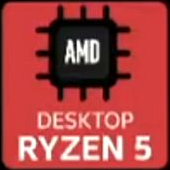-
Featured Topics
-
Topics
-
0
-
16
-
GanjajoggiBig ·
Posted in Networking2 -
Shidaro ·
Posted in Troubleshooting4 -
0
-
bad at PCs ·
Posted in Troubleshooting2 -
Nena Trinity ·
Posted in Troubleshooting0 -
anirudthelinuxwIzard ·
Posted in Console Gaming0 -
10
-
0
-
-
play_circle_filled

Latest From ShortCircuit:
I'm a Huge Sucker for a Cool Gimmick - Epomaker DynaTab 75X & DynaTab 75
-
play_circle_filled

Latest From Mac Address:
The Apple Vision Pro Leaves a Mark (but not the right kind)

.png.255947720031a641abdac78e663b681c.png)













Create an account or sign in to comment
You need to be a member in order to leave a comment
Create an account
Sign up for a new account in our community. It's easy!
Register a new accountSign in
Already have an account? Sign in here.
Sign In Now